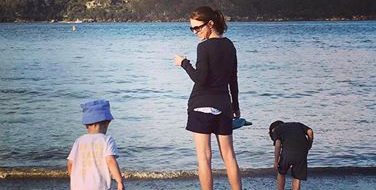 And there I will give her her vineyards
And there I will give her her vineyards
and make the Valley of Achor a door of hope.
“WTF was up with that race?” –The Sis
I don’t run the way I used to.
Not most days, at least. Running has never been easy for me–that’s part of why I do it. Because I like to venture ever-close to the line between “enjoys challenges” and “total masochist”. I want to prove to myself that I can do things I thought I couldn’t. I want to cross finish lines and gain medals. I want to prove my worth.
Yep. I want to prove my worth. And something about running a race, with its Biblical associations and metaphors for life, encapsulates that pursuit: train, show up, finish. Run and done. But it’s never enough, is it? Miles, medals…promotions, money…accolades, awards. We keep running. Working. Performing.
This time, though, I didn’t keep running. Because I don’t run the way I used to. Several years and two kids later, I’m tired. I’m a bit run down. I’m less hydrated. Because who has time to pee? And so, for the first time, I slowed to a walk during a race. Am I going to have to tell people this? was my first thought. How embarrassing. I’m not a fan of displays of weakness. Never mind that weakness is entirely relative. Never mind that running ten miles is more than I once thought I’d ever accomplish–it’s the three-point-one that dog me. When I slowed to an amble somewhere in Sonoma, I was less concerned about the blisters on my feet and the friction burn under my arm than the way I’d be perceived.
Damn. I’m going to have to write about this, I thought.
I took a mile to walk and then ran another, and at the end of that one I saw the gray and purple gear of The Sis ahead. With burning legs, I propelled myself forward fast enough to catch her. Her face mirrored my pain.
“This sucks,” she gasped.
I told her about the woman on the side of the road who’d been puking. She told me about her bad knee. “Why is this so hard?” the middle-aged mothers suffering from jet lag and dehydration and dry heat asked each other.
We walked and talked. We analyzed the situation. Looked for things to blame, as you do.
“Were the hills bad?” people asked afterward, when we told them that no, the race had not been fun. But it wasn’t the hills. Here’s what it was:
It was too bright and too pretty.
Our course covered thirteen-point-one miles of wine country: mostly flat roads, some rolling hills. Row after row of grapes growing on vines. Mountains in the distance. The sun rose swiftly and the heat with it. The asphalt was broken and ripped in places. We dodged potholes and other runners. All the while, our smallness in comparison to the setting’s bigness served as a constant reminder of how far we had to go. The beauty became monotonous. There was too much light, too much warmth.
I can complain about anything.
I wanted to veer off course (don’t we always?), down the dirt roads that led to caves and tasting rooms and barrels full of drink. The shot glass of Gewurztraminer provided at mile 10 whetted my appetite for what I really ached to be doing. But the finish line was ahead, and we dragged each other across it, hobbling but running.
It wasn’t the victory I had envisioned.
The Husband and The Kid and Little Brother and I left the next day, driving past that same scenery, and I noticed the reflectors present among the grapes in the vineyards, placed there to keep birds away. Something shiny intended to repel. How often am I scared off by shiny things because they’re so bright they hurt my eyes? We headed to the hotel near the hospital, where we met the neurosurgeon we’ve only dated long-distance until now. There were handshakes and side hugs–a strange kind of homecoming, but at this point we’re in the business of strange. I was struck by how familiar these medical complexes have become–how they can feel like home. How elevator banks and directories and waiting rooms can hold pain and hope simultaneously; how a kid can get less stares for studying lights here than at a birthday party; how I can breathe easier around a doctor’s office than a vineyard. Never would have guessed that.
And after he saw us–and really saw us–we headed back to the hotel, where the valet held the keys in front of TK and asked if he wanted to drive. I was so tired; I just couldn’t say it one more damn time–he’s not talking yet. This terrain can be so hard sometimes, so too much and not enough all together. But it didn’t matter, because the man turned to me as TK ran around the car, studying the light, and he was the one who spoke:
“You know, I think kids–I think they see things we can’t. I think, sometimes, they might see angels. It’s not crazy–look at him. He sees something we don’t, I know that.”
My legs were burning with all I’d put them through, all the not-enough I’d proven to be, and the soreness then, it felt like an act of grace, a reminder of all the parts I’ve been given that work, that were put there for a reason, that I just forget about every other day. I can be equipped without being enough, and this is more than okay…it’s design. TK continued running and seeing and being seen–and what a view he is. A view that–I know it even in the hard moments when I have to slow to a walk–will change people. Will change the way they see. This thought steals my breath in a way thirteen point one ever could.
We pulled off then, headed south, and along the way passed the signs for scenic views that are so common in these settings–this natural beauty that can feel like too much and not enough at the same time–and after awhile, we noticed a pattern to TK’s laughter from the backseat. He was staring at the power lines suspended along the side of the road and finding them hilarious. And who am I to say they aren’t, just because I didn’t see it myself? The hours-long ride didn’t magically become perfect, but it was punctuated and informed by one of my favorite sounds, by that pure laughter that transcends heat and sun and traffic, and I sat still, both pained and recovering, enjoying the view.










